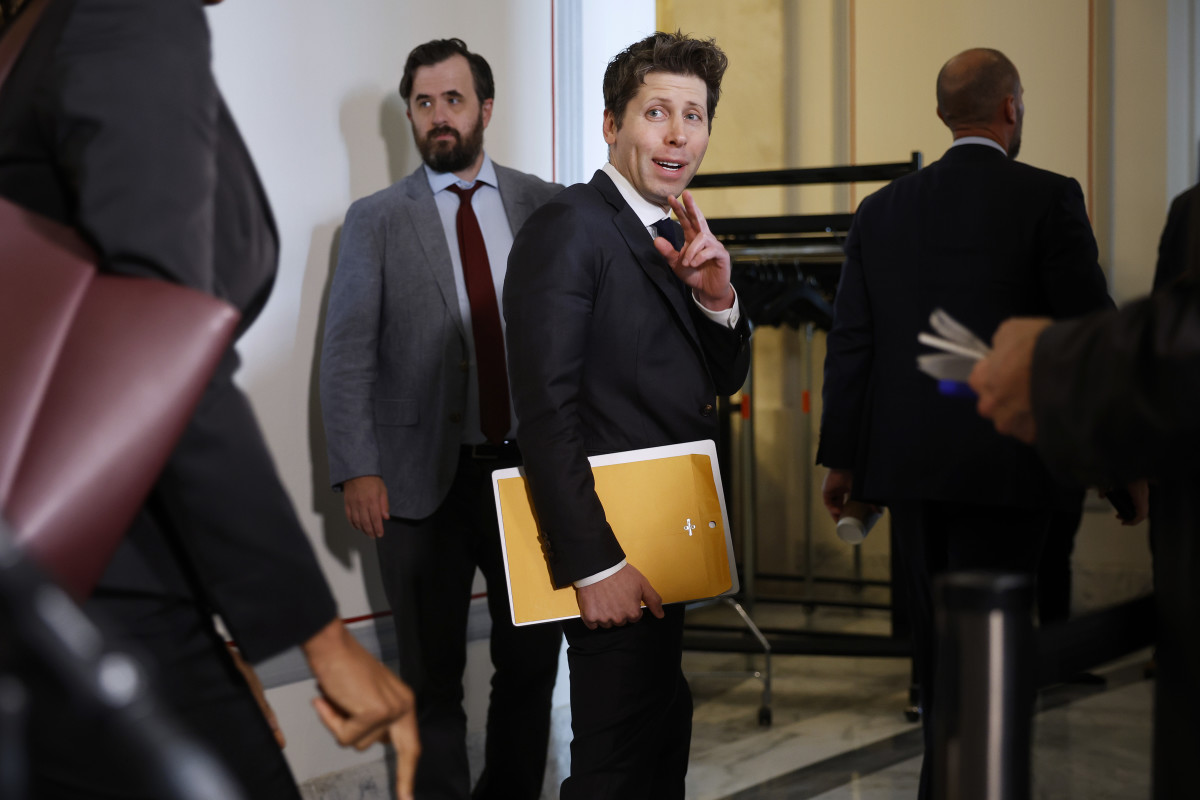
The launch of ChatGPT at the end of 2022 set up 2023 as the year of generative artificial intelligence.
And it was.
Companies, both the mega-caps and startups alike, spent the past year racing to enhance and ship ever-more-powerful AI-powered chatbots and products. Corporations, touting game-changing productivity enhancements, have raced to apply generative AI tools to their businesses.
And Wall Street excitement over the investing potential of generative AI led to enormous surges in the tech sector, with Microsoft (MSFT) -), Tesla (TSLA) -) and Nvidia (NVDA) -) all ballooning in value by the end of the year.
Related: AI trends: What experts, execs think artificial intelligence will look like in 2024
Lawmakers, meanwhile, have raced to better understand how to regulate AI even as lawsuits alleging copyright infringement have begun to stack up against the AI firms. The U.S. still has yet to pass any firm regulation.
In the midst of this mixed environment of burgeoning excitement from tech corporations who stand to earn billions and the ethicists, regulators and creatives who seem decidedly more cautious toward AI, a new study from Cognizant and Oxford Economics found that generative AI could grow the U.S. GDP between $477 billion and $1 trillion in annual value over the next decade.
This estimation, according to the study, is based on business adoption rates.
Businesses right now are experimenting with AI adoption, though the study found that corporate AI adoption could jump from 13% to 31% in the next four to eight years. Adoption is expected to slow after 15 years but will continue to grow for another 15 years.
But even as the GDP is expected to grow amid ever-expanding adoption, the U.S. job market is expected to be harshly disrupted. The study found that more than half of all jobs are expected to change significantly with the integration of AI, resulting in the displacement of around 9% of the U.S. workforce, and 1% of the workforce might struggle to find employment in that potential era of AI.
Related: Human creativity persists in the era of generative AI
Labor in an AI future
Unlike previous technological revolutions in automation, the study found that the AI revolution will "have a higher disruption on knowledge work," rather than manual labor.
"Generative AI has already astonished us with its capabilities across industries, but the true impact of its integration in our daily business operations has just scratched the surface," Ravi Kumar S, Cognizant CEO, said in a statement. "To apply the technology's potential to amplify our productivity, we must understand its full influence on the future of work and come together to create the best opportunities for people to grow alongside it."
Ivanti CPO Dr. Srinivas Mukkamala told TheStreet last year that though AI does stand to boost the GDP of many countries, it will also further broaden the gap between skilled and unskilled workers and countries, creating "so much inequality that no politician can address it."
"This is going to create inequality that we've never seen in our lifetimes," Mukkamala said at the time, adding that AI will see 99% of the world's population get left behind.
Even the technologists developing AI have noted similar things; though Sam Altman, the CEO of OpenAI, has often said that at this stage, AI will create new jobs, he has also noted an eventual environment where it won't.
"A lot of people working on AI pretend that it's only going to be good; it's only going to be a supplement; no one is ever going to be replaced," he told The Atlantic in July. "Jobs are definitely going to go away, full stop."
AI researcher Gary Marcus has said that, if and when technologists create artificial general intelligence (AGI), or an AI that is as or more intelligent than humans, the bulk of human jobs will go away.
OpenAI is working to build AGI.
Altman's solution to that environment is Worldcoin, a startup whose aim is to scan the irises of every human alive in order both to verify humanity in a world of more and more bots, as well as to create the groundwork for the distribution of a universal basic income (UBI) in a future where labor no longer exists.
OpenAI, valued at $86 billion, has received around $13 billion in funding from Microsoft (MSFT) -) alone. Microsoft has a market cap that is inching ever closer to $3 trillion.
Contact Ian with AI stories via email, ian.krietzberg@thearenagroup.net, or Signal 732-804-1223.
Related: OpenAI CEO Sam Altman's latest venture under fire for privacy concerns
Get exclusive access to portfolio managers’ stock picks and proven investing strategies with Real Money Pro. Get started now.







